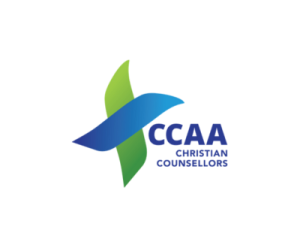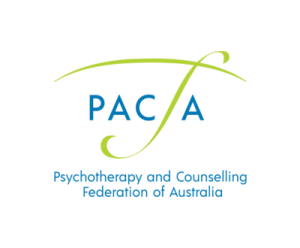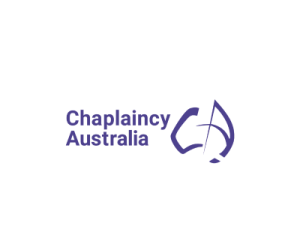Build a foundation in research and writing in this pivotal unit designed to equip students with robust academic writing and research skills specific to the social sciences and counselling fields. Students will enhance their ability to critically assess literature, construct evidence-based arguments, and effectively communicate both orally and in writing, preparing them for advanced studies and professional effectiveness.
This is a core subject that introduces students to the fields of psychology, social science and the importance of emotions in human identity. It forms the basis for other more advanced psychology subjects. This subject will allow students to develop a better understanding and management of their emotions. This knowledge is then applied to a professional context, enhancing students' abilities to identify and work appropriately with the emotions of clients in an empathetic and professional manner.
Dive into a comprehensive overview of human services and its theoretical frameworks. This subject prepares students for diverse roles within case management, counselling, and support services, focusing on effective service delivery and client care. Students will learn the fundamentals of the case management process, explore various professional roles, and apply reflective practices to improve their proficiency and understanding of good practice.
Enhance your ability to communicate effectively in professional people-helping settings. This subject will equip you with learning foundational interpersonal communication skills. Through practical exercises, you will develop your counselling micro-skills including conflict management responses, within a culturally sensitive framework. This unit is designed to meet PACFA and ACA training requirements.
This subject explores the developmental journey and processes that an individual goes through over a lifespan, from conception to death. It introduces various theories and milestones associated with each life stage and includes multicultural and critical perspectives on development. It will enable students to help individuals understand normal developmental processes, whether in health, education, minstry or people helping fields.
Supporting those experiencing grief and loss is crucial for effective counselling. This unit equips students with specialised skills to support individuals navigating these challenging experiences. Students will learn to distinguish between different types of grief and develop tailored intervention strategies, enhancing their ability to empathise and provide essential support within a self-care framework.
Gaining insight into Australian society through a sociological lens is pivotal in understanding the complex influences shaping identity. This unit delves into how cultural and social factors shape personal and community identities. By examining the various structures and facets of society and social policy, students will learn to actively participate in the various social spheres with which they need to engage as practioners.
This subject helps to prepare you to work effectively with clients by learning advanced counselling micro-skills and techniques in. With an emphasis on applying micro-skills and evidence-based methods in counselling contexts, you'll learn how to respond to complex needs such as anxiety and stress. This unit aligns with professional practice standards, offering practical, experiential training, that includes role-plays, to continue the development of your interpersonal communication skills.
Understanding group dynamics and community leadership is essential for supporting effective change in group settings. This unit equips students with the skills to lead and develop communities while integrating both sociological and Christian perspectives. Through hands-on experiences, students will learn to manage ethical issues and apply professional standards, preparing them to positively impact community and group work settings.
Gaining insight into mental health conditions is pivotal for providing effective support and intervention. Students in this subject will learn to recognise symptoms, deliver appropriate assistance, and understand the role of the community in supporting mental wellbeing. They will develop skills in treating individuals with empathy, respect, and compassion, while fostering a hopeful and supportive environment.
Having a basic understanding of trauma and its effects is essential for any professional working within the community. This unit gives an introduction to understanding what constitutes trauma, along a continuum from acute to chronic presentations. Additionally, you will learn about self-care to manage the effects of trauma on the people helper, aiding in longevity and efficacy in this challenging field.
Understanding ethical and legal frameworks is vital for anyone entering the people helping profession. This subject helps students to understand the ethical principles and legal requirements within their field, in order to confidently manage complex ethical dilemmas. You will learn to apply ethical decision-making models, prioritise self-care, and appreciate the importance of ongoing professional development.
Discover the foundations of faith and how it relates to one's worldview and purpose. Students will explore the Christian story from Scripture and express ideas of their own faith, examine how faith shapes views on the meaning and purpose of life, the value of humanity and ideas of human flourishing. Expand your perspective in this core subject and understand the significance of faith in all areas of life.
Understanding family dynamics is pivotal for effective counselling. This unit offers a comprehensive exploration of family structures and their impacts on individuals. It blends modern and post-modern counselling theories with practical role-play exercises, providing insights into systemic approaches to therapy. You will not only learn to navigate complex family situations but also reflect on how your own family experiences might influence your professional practice.
This unit explores the skills and srategies required to understand and support adolescents through their unique challenges. Students will be introduced to the evolution of adolescence and its implications for both historical and contemporary youth work practices. Students will investigate local youth work sectors, and learn to apply an integrative approach to working with young people.
Integrating theoretical knowledge with practical experience is essential to effectively work with young people. This unit offers a 100-hour supervised youth studies placement through a specialised youth organisation. It allows you to apply prior learning and engage in reflective practice, enhancing your professional competence. This placement will also refine your ability to manage professional relationships and administrative tasks within a real-world counselling setting.
Professional accountability is crucial in developing ethical and effective practice as a counsellor or people helper. This unit is delivered in the same semester as students undertake their supervised field placements and offers weekly group supervision. Students will receive weekly support to help build their assessment and intervention skills, whilst working with actual client’s. The subject meets PACFA's experiential training requirements, focusing on real-world application through case conferences and peer review whilst preparing you to handle professional challenges ethically and effectively, integrating critical reflection and a Christian worldview.
Navigating youth issues effectively is essential for fostering supportive environments that address the unique challenges faced by young people. This unit delves into contemporary youth issues, exploring how they are perceived and affect both individual lives and broader societal dynamics. Students will develop non-judgemental, empathetic strategies for engaging with young people on critical topics whilst adhering to standards of best practice
Through this unit, students will be provided with an in-depth overview of developmental, psychological, and behavioural aspects crucial to understanding and supporting children and young people. Students will learn to apply theories in an holistic approach, within professional and ethical frameworks. They will also gain skills in working effectively within broader teams, referral networks and support structures to respond to the unique needs of children and adolescents.
Gaining proficiency in evidenced supported strengths based modalities is important in modern psychological practice. This unit introduces Solution Focused Therapy (SFT) and Positive Psychology, focusing on the methodology of these strengths based approaches and developing skills to implement these across various settings from individual to organisational applications. Students will have the opportunity to develop many specific skills in addition to increasing their ability to integrate techniques from aligned modalities to enhance client engagement and outcomes.
In this introductory subject, students will explore a broad variety of topics that form the very basis of pastoral ministry. Primarily, students will consider contemporary pastoral models that connect academic reflection with the real world. Topics discussed will range from defining ministry, calling and ordination to conflict resolution, and being effective in caring for others. Students will also be provided with ample opportunity to engage creatively with these topics to make connections with their own contexts.
This unit will explore the broader historical roots of spiritual approaches. Students are encouraged to express faith in new ways and deepen the spirituality of your local Christian community. In doing so, students will have a chance to connect with their heritage and participate in a broad range of spiritual exercises practiced by the wider body of Christ throughout history.
Integrating theoretical knowledge with practical experience is essential to effectively work in chaplaincy and pastoral care. This unit offers a 100-hour supervised chaplaincy and pastoral care placement through a chaplaincy organisation. It allows you to apply prior learning and engage in reflective practice, enhancing your professional competence. This placement will also refine your ability to manage professional relationships and administrative tasks within a real-world counselling setting.
Professional accountability is crucial in developing ethical and effective practice as a counsellor or people helper. This unit is delivered in the same semester as students undertake their supervised field placements and offers weekly group supervision. Students will receive weekly support to help build their assessment and intervention skills, whilst working with actual client’s. The subject meets PACFA's experiential training requirements, focusing on real-world application through case conferences and peer review whilst preparing you to handle professional challenges ethically and effectively, integrating critical reflection and a Christian worldview.
Gaining proficiency in evidenced supported strengths based modalities is important in modern psychological practice. This unit introduces Solution Focused Therapy (SFT) and Positive Psychology, focusing on the methodology of these strengths based approaches and developing skills to implement these across various settings from individual to organisational applications. Students will have the opportunity to develop many specific skills in addition to increasing their ability to integrate techniques from aligned modalities to enhance client engagement and outcomes.
Effective chaplaincy and pastoral care requires an understanding of the diverse settings in which care may be required, as well as the pillars of best practice. By learning the foundational theories and skills needed for chaplaincy and pastoral care, students will develop competence in providing care across a range of circumstances and within a variety of social, cultural and spiritual or religious contexts.
Navigating social and cultural diversity skilfully and considerately is vital in people-helping fields. This subject explores the competencies required to understand and respect diversity within communities, developing empathetic and effective strategies to provide care across socially and culturally diverse contexts. Students will learn to assess and enhance their own social and cultural awareness, whilst developing their social and cultural competence for professional practice.
Gaining a deep understanding of various counselling theories is essential for effective therapeutic practice. This subject provides a comprehensive overview of historical and modern counselling methodologies, from Freudian psychoanalysis to contemporary approaches such as Solution Focused Therapy and Positive Psychology. Students will learn how to critically evaluate different models, reflect on their personal and professional implications, and apply them across diverse therapeutic contexts.
Integrating theoretical knowledge with practical experience is essential for effective counselling. This unit offers a 100-hour supervised counselling placement through the AC Wellbeing Centre and an external organisation. It allows you to apply prior learning and engage in reflective practice, enhancing your professional competence. This placement will also refine your ability to manage professional relationships and administrative tasks within a real-world counselling setting.
Professional accountability is crucial in developing ethical and effective practice as a counsellor or people helper. This unit is delivered in the same semester as students undertake their supervised field placements and offers weekly group supervision. Students will receive weekly support to help build their assessment and intervention skills, whilst working with actual client’s. The subject meets PACFA's experiential training requirements, focusing on real-world application through case conferences and peer review whilst preparing you to handle professional challenges ethically and effectively, integrating critical reflection and a Christian worldview.
Understanding family dynamics is pivotal for effective counselling. This unit offers a comprehensive exploration of family structures and their impacts on individuals. It blends modern and post-modern counselling theories with practical role-play exercises, providing insights into systemic approaches to therapy. You will not only learn to navigate complex family situations but also reflect on how your own family experiences might influence your professional practice.
Gaining proficiency in evidenced supported strengths based modalities is important in modern psychological practice. This unit introduces Solution Focused Therapy (SFT) and Positive Psychology, focusing on the methodology of these strengths based approaches and developing skills to implement these across various settings from individual to organisational applications. Students will have the opportunity to develop many specific skills in addition to increasing their ability to integrate techniques from aligned modalities to enhance client engagement and outcomes.
Gaining proficiency in Cognitive Behavioural Therapy (CBT) is highly beneficial for effective counselling as CBT is still considered the gold standard of evidenced based therapeutic intervention. This unit introduces the foundational theories and practices of CBT, offering students practical skills in applying these techniques across diverse counselling scenarios.
Understanding relationships is foundational for effective therapy. Building on prior knowledge of personality and behaviour, you will delve into the complexities of relational dynamics, including the impact of family backgrounds and life changes such as separation or divorce. Through practical role-plays and evidence-based strategies, you'll learn to navigate and improve various relationship scenarios, preparing you to support clients effectively in maintaining healthy relationships.
Through this unit, students will be provided with an in-depth overview of developmental, psychological, and behavioural aspects crucial to understanding and supporting children and young people. Students will learn to apply theories in an holistic approach, within professional and ethical frameworks. They will also gain skills in working effectively within broader teams, referral networks and support structures to respond to the unique needs of children and adolescents.
No subjects found in this category.
No subjects found in this category.
No subjects found in this category.
Professional accountability is crucial in developing ethical and effective practice as a counsellor or people helper. This unit is delivered in the same semester as students undertake their supervised field placements and offers weekly group supervision. Students will receive weekly support to help build their assessment and intervention skills, whilst working with actual client’s. The subject meets PACFA's experiential training requirements, focusing on real-world application through case conferences and peer review whilst preparing you to handle professional challenges ethically and effectively, integrating critical reflection and a Christian worldview.
Navigating social and cultural diversity skilfully and considerately is vital in people-helping fields. This subject explores the competencies required to understand and respect diversity within communities, developing empathetic and effective strategies to provide care across socially and culturally diverse contexts. Students will learn to assess and enhance their own social and cultural awareness, whilst developing their social and cultural competence for professional practice.
Through this unit, students will be provided with an in-depth overview of developmental, psychological, and behavioural aspects crucial to understanding and supporting children and young people. Students will learn to apply theories in an holistic approach, within professional and ethical frameworks. They will also gain skills in working effectively within broader teams, referral networks and support structures to respond to the unique needs of children and adolescents.
Navigating youth issues effectively is essential for fostering supportive environments that address the unique challenges faced by young people. This unit delves into contemporary youth issues, exploring how they are perceived and affect both individual lives and broader societal dynamics. Students will develop non-judgemental, empathetic strategies for engaging with young people on critical topics whilst adhering to standards of best practice
No subjects found in this category.











